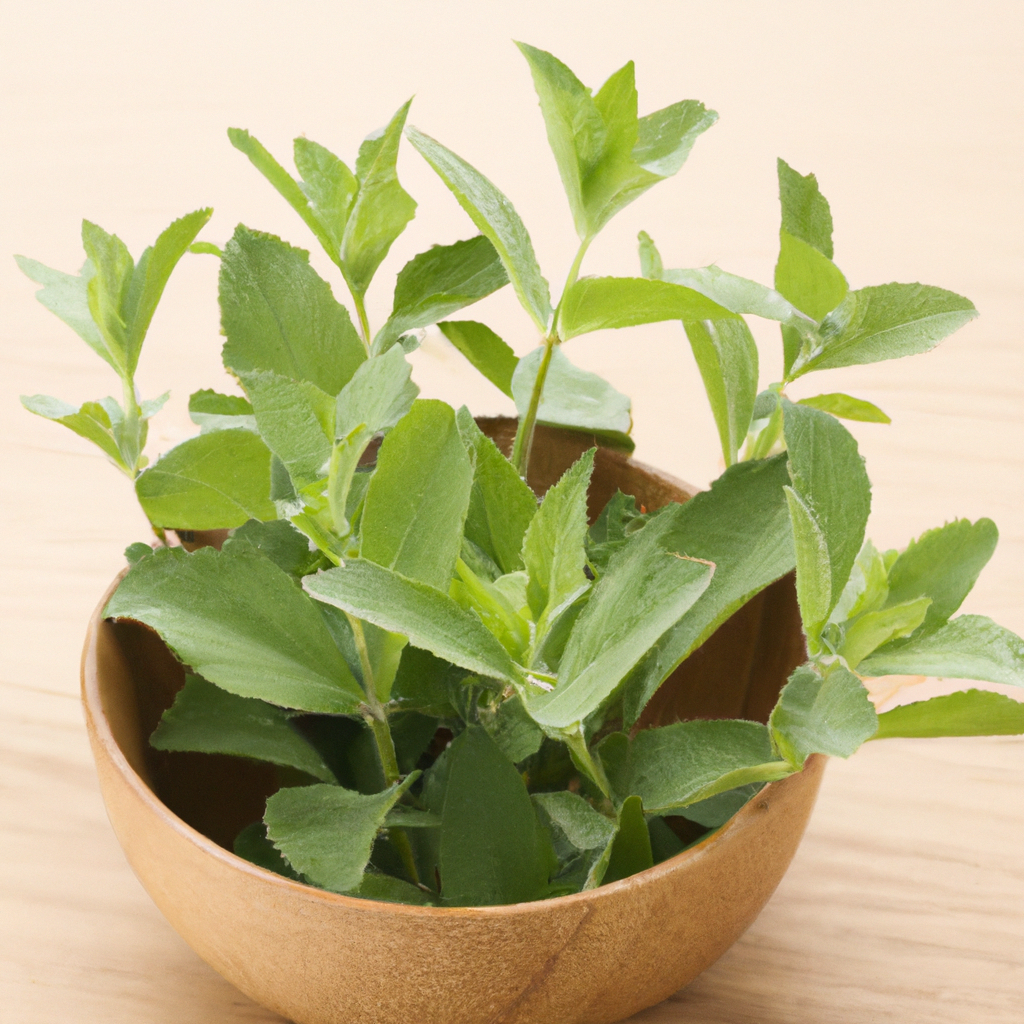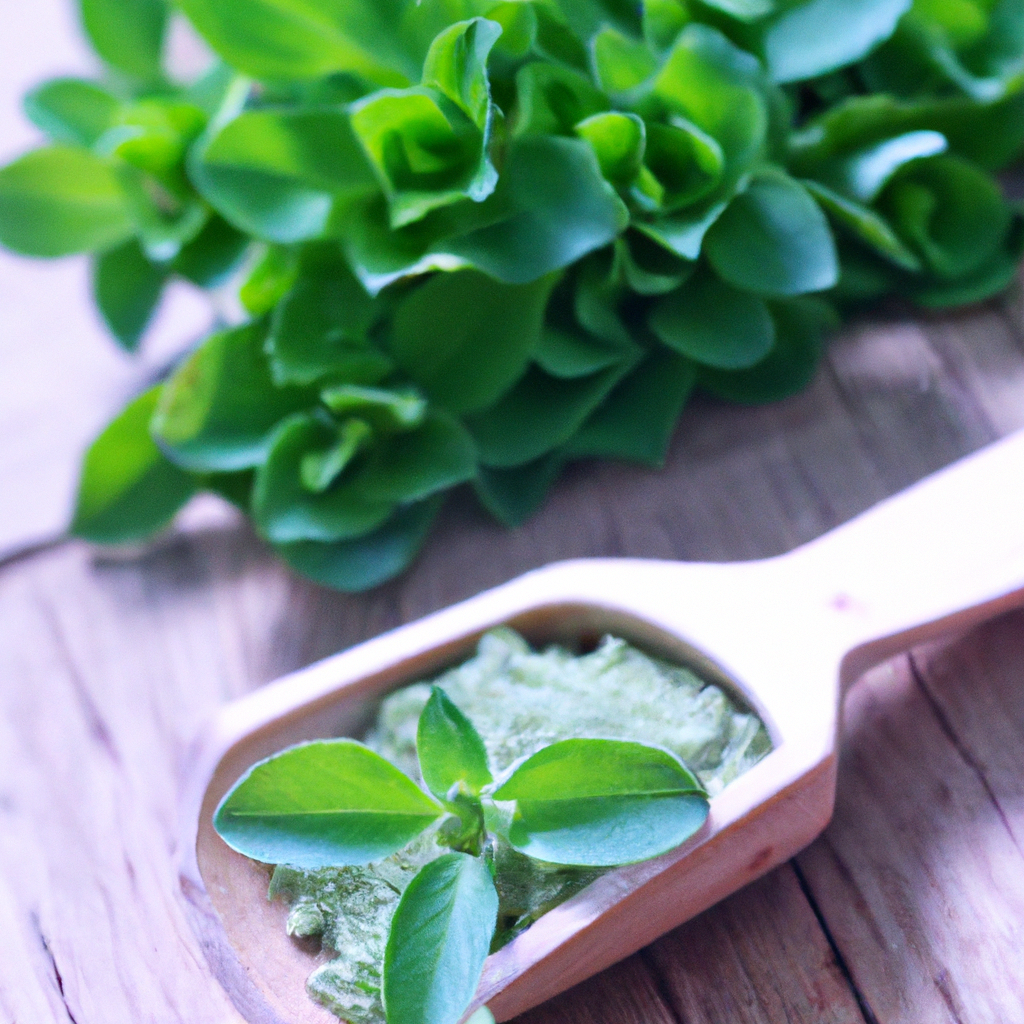Stevia
Do you have a sweet tooth but worry about the negative health effects of sugar? You’re not alone. Many people are looking for healthier alternatives to sugar, and one of the most popular options is Stevia. Stevia is a natural sweetener that has been used for centuries by indigenous people in South America. In recent years, it has gained popularity as a sugar substitute due to its many health benefits. In this article, we’ll explore what Stevia is, how it’s used, and the benefits it offers.

What is Stevia?
Stevia is a natural sweetener derived from the leaves of the Stevia rebaudiana plant. This plant is native to Paraguay and Brazil and has been used for centuries by indigenous people in these areas to sweeten tea and other foods. Stevia is a non-caloric sweetener that is 200-300 times sweeter than sugar, so a little goes a long way. It has a slightly different taste than sugar, but many people find it to be a pleasant and satisfying alternative.
Steviol glycosides, don’t add calories or have an impact on blood glucose when ingested. Once they reach the colon, gut bacteria use the glucose molecules as fuel. This makes steviol glycosides an ideal choice for diabetics and those looking to reduce their calorie intake without sacrificing sweetness.
Types of Stevia
There are three main forms of stevia available on the market: liquid stevia extract, powdered stevia extract, and even whole stevia leaves. Each form has its own unique flavour and sweetness profile, making them ideal for different recipes and drinks. Additionally, each form has different levels of sweetness and health benefits, making them great options for those looking for a natural healthier alternative to sugar.
How is Stevia used?
Stevia can be used in many different ways as a sugar substitute. Here are some popular options:
- Sweetening beverages: Stevia can be added to coffee, tea, and other drinks to provide a sweet taste without the calories and health risks of sugar.
- Baking: Stevia can be used in place of sugar in many baking recipes. However, it’s important to note that Stevia does not have the same chemical properties as sugar, so some adjustments may need to be made to the recipe.
- Cooking: Stevia can also be used in cooking to provide a sweet taste to dishes such as sauces and marinades.
Benefits of Stevia:
- Low in calories: Stevia is a non-caloric sweetener, which means it provides a sweet taste without the added calories of sugar. This makes it a great option for those who are trying to lose weight or maintain a healthy weight.
- Lowers blood sugar: Stevia has been shown to lower blood sugar levels in people with type 2 diabetes. This is because Stevia does not raise blood sugar levels like sugar does.
- Antioxidant properties: Stevia has been found to have antioxidant properties, which means it can help protect the body from damage caused by free radicals.
- May reduce blood pressure: Stevia has been shown to have a mild blood pressure-lowering effect in people with high blood pressure.
- Whole-leaf stevia can be grown at home.
Cons of Stevia:
- The safety of whole-leaf stevia has not been studied as extensively as stevia extracts.
- Stevia has a slightly bitter taste, somewhat similar to liquorice.
- Store-purchased stevia such as Truvia and Stevia often contain other sweeteners, such as sugar alcohol or dextrose/glucose.
FAQs:
Q: Is Stevia safe? Yes, Stevia is considered safe for most people. It has been approved as a food additive in many countries.
Q: Is Stevia suitable for baking? Yes, Stevia can be used in baking. However, as Stevia does not have the same chemical properties as sugar, some adjustments may need to be made to the recipe.
Q: Does Stevia have any side effects? In general, Stevia is considered safe and has no significant side effects. However, some people may experience mild gastrointestinal symptoms such as bloating or gas if using the store-bought versions.

Conclusion:
Stevia is a natural sweetener that offers a healthy and versatile alternative to sugar. It’s low in calories, has antioxidant properties, and may even help lower blood sugar and blood pressure. With its many benefits, it is certainly another option for you to consider in your wide and varied diet.
There are many to choose from, here at 121 Dietitian we have found that NKD Living Stevia and Erythritol a good option to start with for flavour and ease of use. Do let us know if you have one you enjoy.
If you want to book your programme TODAY we would love to help you.
You can book a 121 Dietitian Programme today by clicking on the link below
If you have enjoyed this blog we would love you to share this with your family and friends on your social media channels. Do visit our YouTube Channel for more on keeping your health optimal.
If you are interested in how I overcame my Thyroid Autoimmune Condition do check out the About section below
Before you go please check out our 121 Dietitian Shop created specifically for optimising your health.
Gillian x
Links included in this description might be Amazon affiliate links. If you purchase a product or service with the links that I provide I may receive a small commission.